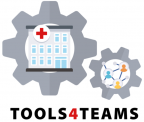Recruiting organisation: Discipline of Primary Care, University of Galway, Galway, Ireland.
Supervisors: Dr. Paul O’Connor, Dr. Sinead Lydon, Dr. Angela O’Dea
Doctoral Candidate: Sara Cucurachi
Secondments: Aerogen, Galway (3 months); University of Applied Sciences and Arts Northwestern Switzerland (2 months)
Summary: The purpose of the project is to investigate how remote monitoring of patients in the community can be carried out in order to improve the situation awareness of the healthcare team responsible for caring for the patient. The goals of the project are to:
(1) examine the quality and safety issues with the remote physiological monitoring of patients in community healthcare settings; (2) identify the barriers to, and enablers of, remote physiological monitoring of patients from the perspective of all stakeholders- patients, healthcare professionals, healthcare policy makers, and technology developers; and
(3) develop recommendations for how to address the barriers to remote physiological monitoring to improve team performance.
Background
The purpose of the project is to investigate how remote monitoring of patients in the community can be carried out in order to improve the situation awareness of the healthcare team responsible for caring for the patient. The goals of the project are to: (1) examine the quality and safety issues with the remote physiological monitoring of patients in community healthcare settings; (2) identify the barriers to, and enablers of, remote physiological monitoring of patients from the perspective of all stakeholders- patients, healthcare professionals, healthcare policy makers, and technology developers; and (3) develop recommendations for how to address the barriers to remote physiological monitoring to improve team performance.
Approach
The goals of the project will be achieved through: (1) a systematic review of the quality and safety of remote monitoring of patients in the community; (2) comprehensive understanding of the barrier and enablers of the remote monitoring of patients in the community; and (3) guidance for patients, healthcare professionals, healthcare policy makers, and technology developers on how to support the safe monitoring of patients in the community.
Our research team
The Doctoral Candidate will join the Discipline of General Practice at the University of Galway. This is the largest stand-alone department of General Practice in Ireland with two clinical Professors, two senior lecturers, eight lecturers, and ten researchers. The environment of the Discipline is strongly research active with a focus on developing and sustaining meaningful collaborations and research networks. The research themes of the discipline include chronic condition and multimorbidity, antibiotic resistance, connected health, clinical education, and patient safety.
During your studies, THe Doctoral Candidate will also complete a three month secondment to Aerogen (a medical device manufacturing company located in Galway) and a two month secondment to the University of Applied Sciences and Arts Northwestern Switzerland
University of Galway
Founded in 1845, the University of Galway is located in the city of Galway on the west coast of Ireland. With over 19,000 students, 3,300 international students and 480 international staff from 122 countries, the university contributes greatly to the diversity and dynamism of Galway city and the West of Ireland as a region. The University of Galway is Ireland’s leading University for student volunteering and for graduate employability, with a graduate employment rate of 98% over the past number of years.
The University’s main Galway campus sits at the heart of the city, covering over 105 hectares of land along the River Corrib. The regional footprint of the university is the largest in Ireland, spanning the Atlantic seaboard with over 2,770 staff and 110,000 alumni network worldwide. As one of the largest employers in Galway, the university makes a significant contribution to the economic, social, and cultural fabric of the city.
